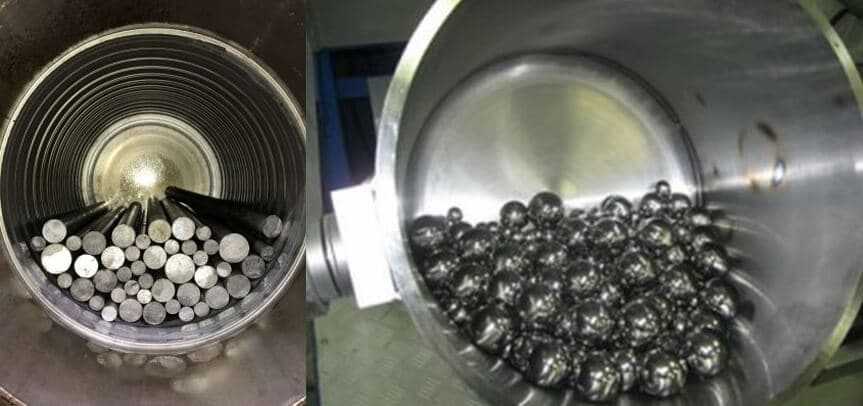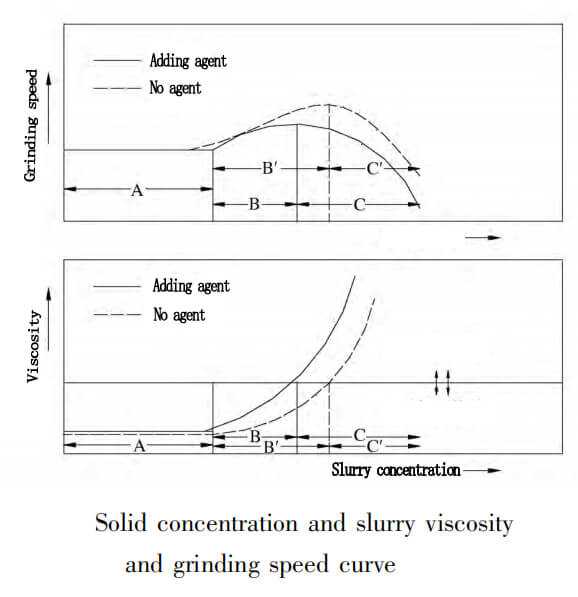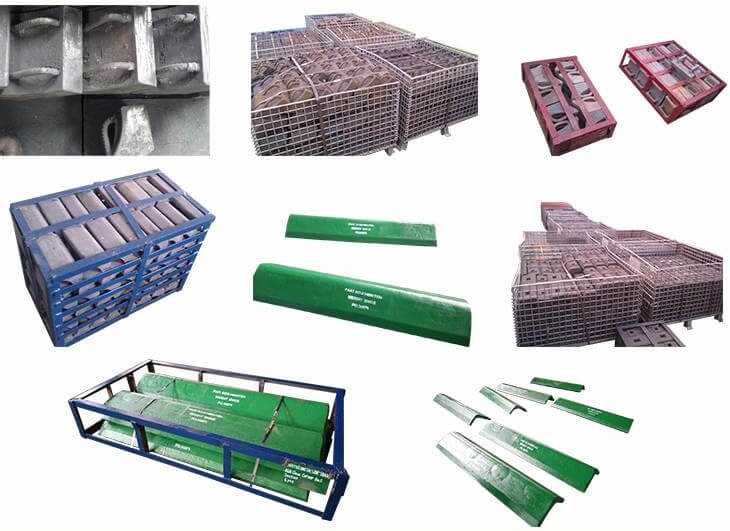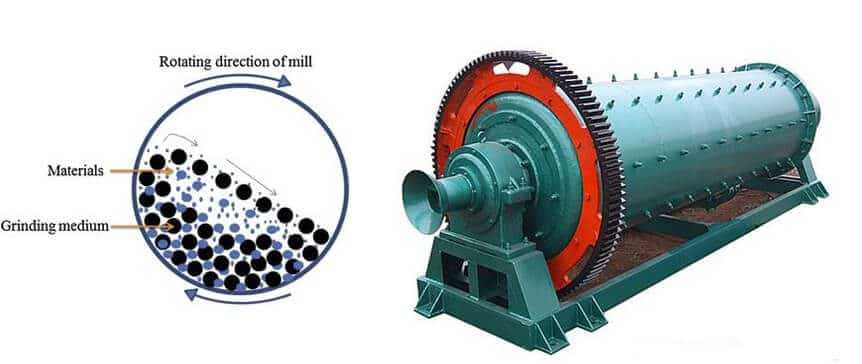Factors Influence Ore Grinding Mill Efficiency
Posted on: May 10, 2019, · 5 min read.
Factors Influence Ore Grinding Mill Efficiency
Abstract
The grinding efficiency is the most important parameter to evaluate machine performance. This article discussed the factors that influence grinding efficiency including article size to mill machine,milling medium,slurry rheological properties,underflow ratio,liner,grinding aid etc. The mill machine should be automatically controlled at a high level.
Ore grinding is a very important section in concentrators, which provides qualified grain grade materials for the subsequent mining processing operation. Grinding accounts for a great proportion of the basic construction investment of the concentrator, it is also consumed steel and energy high. According to statistics, the energy consumption of the crushing and grinding operation accounts for about 65% ~ 75% of the total energy consumption of the concentrator, and the steel consumption accounts for almost 100%. Therefore, it is of great economic and social benefit to correctly select the grinder mills, optimize the operation and improve the grinding efficiency.
1 Ore particle size
In the most grinding process of the concentrator, the construction investment and production and operation cost of grinding operation is much higher than those of crushing operation, so it is necessary to reduce the grinding particle size as much as possible. The finer the grinding particle size is, the higher the grinding efficiency is, and the lower the steel ball consumption is. At present, "more crushing and less grinding" is one of the main principles of concentrator design and production. Take a gold mine as an example, reducing ore particle from -15mm to -10mm improve the grinding efficiency from 1150 tons per day to 1500 tons per day, and decrease the steel consumption and electric power consumption by 1.53kg/t to 1.1kg/t and 41.57kWh to 29.2kWh respectively.
2 Milling medium
Grinding mill medium is the main factor affecting grinding efficiency. In industrial production, the type, shape, size ratio and filling rate of grinding medium should be determined according to the grain size characteristics, hardness characteristics and product particle size requirements of ore materials.

2.1 Medium filling rate
The medium filling rate is the volume ratio of the medium and grinding cavity, moves in throwing and falling state in a ball mill. The throwing motion medium is used to smash large ore, and the medium of falling movement mainly plays the role of grinding. The filling rate of the fine grinding mill is about 5% lower than that of the coarse grinding. The motion state of the medium in the mill is related to the medium filling rate. There is friction force between the medium and the liner. When the filling rate and the friction force are large enough, the liner can bring the grinding medium to the height of the throwing point. It is also important to note that the medium filling rate should not exceed the limit. By the way, the larger the diameter of the ball mill, the lower the filling rate. For the rod mill, the filling rate is generally 10% lower than that of the ball mill of the same specification.
2.2 Diameter of steel grinding ball
The grinding efficiency is reflected in the processing capacity of the mill and the fineness of the grinding ore. Large diameter steel ball help reduces grinding time thus improves grinding efficiency, in addition, putting some small steel ball to control the particle fineness effectively. In fact, the steel balls are continuously worn and the straight diameter is gradually smaller, so it is difficult to guarantee the ratio of the diameter of the steel ball to keep a stable level.
2.3 Medium shape
In the past few decades, researchers have done much work on finding the best shape of grinding medium. Practice shows that the ball mill can reach the finest grain with a lower cost under the regular grinding task requirements. Ball mill or rod mill, is there any else? Some researchers are focusing on a new type of grinding medium called spherocylinder in which has the combination of ball and rod. Experiments show that the spherocylinder grinding speed of the particle is bigger than 500μm is faster than that of the ball mill. Besides, owing to the great features of selective grinding and fine grinding, the spherocylinder mill is definitely a good alternative shape to handle the grinding tasks.
3 Slurry rheological properties
Rheology is the science of studying the flow and deformation of objects. The slurry is often considered to be a fluid, which is deformed under stress. The concentration of slurry, particle shape, and particle size distribution are the important factors affecting the slurry rheological properties.
 From the analysis of the slurry rheological properties and the grinding speed, it can be seen that the grinding concentration affects the slurry liquidity, ore particle adhesion degree, and grinding efficiency. When the concentration/ thickness is too low, the slurry flows quickly and the adhesion degree on the medium is low, which weakens the impact and grinding force grinding mill apply on the ore material. Contrarily, high concentration, high adhesion may slow the flow speed, cause over grinding thus influence the production capacity. Practices show that only appropriate concentration can fulfill the grinding process at its best. For your reference, the grinding concentration of ball mill should better adjust to 72% - 82%.
From the analysis of the slurry rheological properties and the grinding speed, it can be seen that the grinding concentration affects the slurry liquidity, ore particle adhesion degree, and grinding efficiency. When the concentration/ thickness is too low, the slurry flows quickly and the adhesion degree on the medium is low, which weakens the impact and grinding force grinding mill apply on the ore material. Contrarily, high concentration, high adhesion may slow the flow speed, cause over grinding thus influence the production capacity. Practices show that only appropriate concentration can fulfill the grinding process at its best. For your reference, the grinding concentration of ball mill should better adjust to 72% - 82%.
4 Regrinding sand
Regrinding sand is a kind of ore with unqualified particle size but close to qualified after grinding process, which is returned to the mills for regrinding. At usual, the grinding efficiency of the inner cavity is not balanced, the efficiency is gradually decreased from the feeding end to the discharging end because of the uneven distribution of the coarse grain along the axial direction. Based on the crushing theory, increasing the amount of regrinding sand does not increase the power consumption of the mill, but only speed up the slurry flow. In addition, thick and coarse regrinding speeding up the slurry flow can make the coarse grain distributed more evenly, thus improve the steel ball grinding performance and efficiency.
5 Liner and grinding aid
The liner plays the role of protecting the cylinder and end cover of the mill and lifting the grinding medium. The shape and material of liner have a great influence on the steel consumption of grinding. In addition to the traditional manganese steel liner, there are rubber liner and magnetic liner.

5.1 Rubber Liner
The consumption of mill liner accounts for a large proportion of the mineral processing cost. In recent years, some new wear-resistant materials have appeared. Among them, rubber liner has been well popularized because of its wear-resistant, long life, energy saving, noise reduction and so on. Because of the soft material, the rubber liner plays the role of cushioning on the cylinder. In the rough grinding operation, the impact of the steel ball will be cushioned, which reduces the production efficiency of the mill. But in the fine grinding task, the rubber liner can bring its superiority into full play.
5.2 Magnetic liner
The magnetic liner uses the magnetism of liner itself to adsorb a layer of ferromagnetic materials in the cylinder, including magnetic minerals, broken steel balls, etc., to form a protective layer of liner, so as to prevent the liner body from being worn out and prolong the life of the liner. Magnetic liner is mostly used for fine grinding.
5.3 Grinding aid
Grinding aids are a kind of grinding auxiliaries, which can accelerate plastic deformation, promote crushing process, prevent condensation and adhesion. A small number of grinding aids can improve the grinding efficiency and reduce the power consumption of grinding.
Summary
It is can't agree more that do a detailed study of ore properties before choosing grinding mills, only appropriate design and configuration would bring further profit. MINING MACHINE FOR SALE
Read More Blogs
